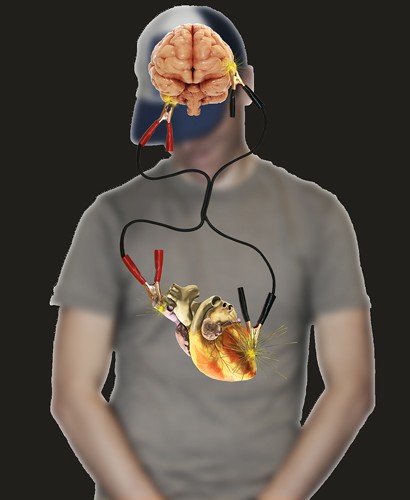Emotional distress sometimes occurs in tandem with physical pain, according to a recent study by a group of researchers at the UA. The group found that the area in the brain that controls physical pain is also the center for emotional pain.
Richard Lane, a psychiatrist and a UA professor of psychiatry, headed the study, along with Carolyn Fort, a senior research specialist with the Department of Psychiatry. They studied the link between emotional trauma and physical pain, such as chest pains.
Arizona Pain Research group, based out of the Pharmacology department, is in a partnership with the UA and Tucson medical professionals, said Janet Stark, editor at the public affairs office of the Arizona Health Sciences Center.
The researchers were among the first to publish their study on emotional pain and its physical manifestations.
“”Social pain and actual pain activates some of the same brain areas,”” Lane said.
The study focused on one-minute brain scans measuring heart rate variability during emotional stimulation. These scans showed the flow of pain registry starting in the brain and moving through the body.
This study of the brain’s activation during emotional pain is decades old.
“”We were one of the first research groups to publish research regarding emotion,”” Lane said of the first study conducted in the 1990s.
Students on campus have noticed how hard emotional pain is to deal with and how it can cause physical pain.
“”I’d say there’s different types of emotional pain, sometimes it’s frustration, usually emptiness,”” said Eric Hopkins, a civil engineering freshman. “”There’s always something on your mind and you’re kind of just missing that something.””
Other students noted that a lack of emotional support adds to the stress that pain causes.
Lane said this kind of research is being applied to the loss of a loved one, a painful breakup or a move away from friends and family.
“”It was the distance and not having the emotional support that I had at home,”” said Genelle Barr, an elementary education freshman, about her headaches after her grandfather died.
Several articles were published about the UA scientists’ research. The topic of the March 2010 issue of Scientific American Mind will be how the study applies to various emotional stresses.









